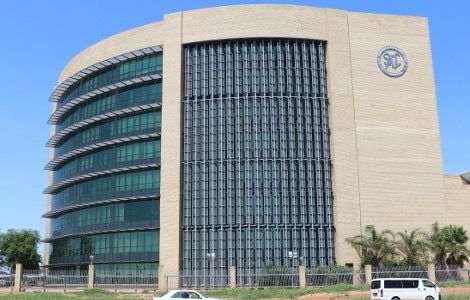RETAIL and investment banking confidence fell to an all-time low in the first quarter of this year as non-performing loans hit bottom-line profits of South Africa’s biggest banks, according to Ernst & Young’s latest banking index.
Emilio Pera, the banking director at Ernst & Young, said on Monday that confidence fell from 50 points in the fourth quarter to 36 points in the first quarter, as tough economic conditions continued to hurt the banking sector.’Retail banks are a little less optimistic about business prospects,’ said Pera.’And both retail and investment banking segments … reflect their lowest confidence levels since the inception of the survey in 2002.’This is reflective of continued subdued consumer income, rising corporate distress in some key sectors and continued fallout from the global liquidity crisis. This latest confidence in the banking sector is symptomatic of worsening economic conditions in many sectors of the economy.’Banks are concerned about companies in the sectors that are most vulnerable to shrinking export demand, such as mining and manufacturing.Provisions for bad debts are likely to be a major contributor to declining earnings in the quarters ahead, just as they have been for the retail market over the past 18 months.Pera said that large South African banks could find themselves squeezed in the retail and corporate segments in the next few quarters.He added that the banking sector was a barometer of underlying economic fundamentals. The liquidity crunch, while not directly hurting the local banking market, had made itself felt.Patrick Wadula, the head of media relations at Absa, said the group’s position on operating conditions had not changed much from its position when releasing results for the year to December.The bank said that though further interest rate cuts and fuel price relief were probable, it was likely that economic growth, the banking environment and the consumer would remain under pressure in the near term.FirstRand and Nedbank could not be reached for comment. FirstRand said last month that in a very challenging operating environment in the six months to December, earnings had decreased 23 per cent to N$4.6 billion.Paul Harris, the chief executive of FirstRand, said asset quality deterioration and bad debts had remained in line with expectations.He added that the deterioration in the credit cycle would continue this year and might be exacerbated by further stress in the real economy, resulting in further job losses.Lower interest rates would initially negatively affect profits, as interest earned on capital would be reduced, he said.Nedbank said last month that headline earnings had decreased by 2.,6 percent, from N$5,9 billion to N$5,7 billion, in the year to December.In the past financial year Standard Bank grew headline earnings a share by 8 per cent to N$14 billion.It said this was achieved in a difficult environment characterised by high levels of volatility, declining asset prices and reduced liquidity in the fourth quarter. Credit impairments dropped by 147 per cent. -Business Report
Stay informed with The Namibian – your source for credible journalism. Get in-depth reporting and opinions for
only N$85 a month. Invest in journalism, invest in democracy –
Subscribe Now!










